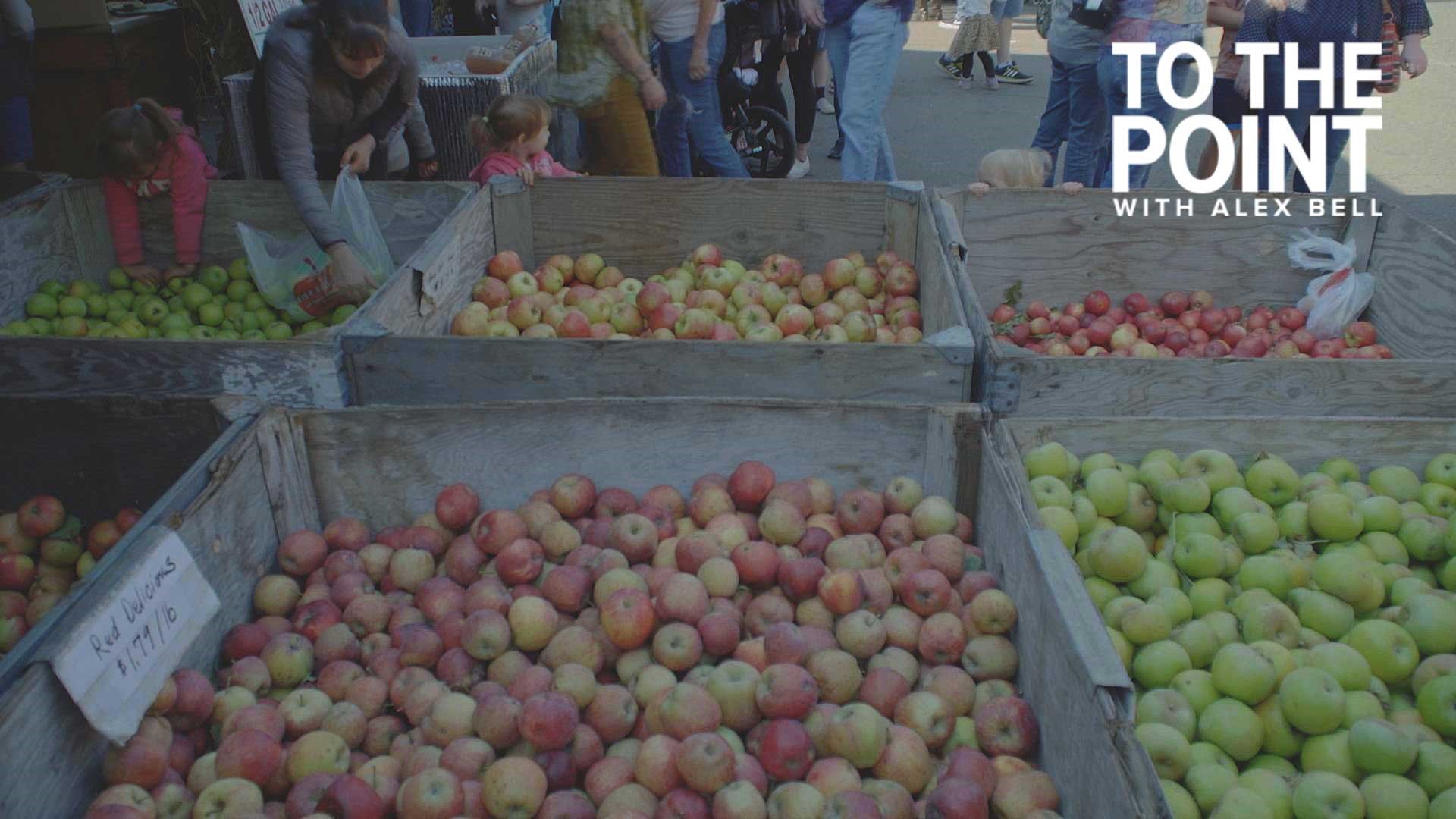CAMINO, Calif. — If you're making the trip up to Apple Hill this fall, the scene looks completely different from last fall.
"Everywhere in Apple Hill... they're going to have nice apples this year," said Tom Heflin when asked about the fall season.
He and his wife Crista have owned Rainbow Orchards since 1977, but Tom was raised in the area so he likes to say he's been here longer than Apple Hill.
Heflin grows a variety of apples. Most people come to Rainbow Orchards looking for the Honeycrisp variety. Some come for the Granny Smith to make apple pie, and Cameos and Fujis are also popular.
No matter the variety of apple you're looking for, the growing season and harvest has been one to remember.
"I can't think of a better summer growing season in all the years we've been here," said Heflin. "It's absolutely perfect from bloom to harvest."
This perfect season started over the winter with the abundant mid-elevation snow the region saw.
"We had a lot of snow, which is good," Heflin said. "Because of the late snow, they [the apples] didn't bloom early, which is also very good. Last year, it was a warm winter, they bloomed and it froze. This year, bloom, no freeze, perfect weather."
Every weekend at Rainbow Orchards between Labor Day and Halloween gets busier and busier as the weather cools down. More and more people are thinking about fall, and they'll make the trek up to Apple Hill.
Climate change threatens what is a pilgrimage of sorts for many Northern Californians. Warmer nights and warmer days, along with more wet to dry and heat to freeze whiplash, could jeopardize everything from the apple’s color and taste to the apple’s ability to grow at all.
For instance, an early heatwave in the 2022 spring season led many of the apple trees to bud and blossom early. Then, a late-season cold snap damaged those same buds and blossoms to the point where the apple harvest last year was more than dismal.
"If the nights are too warm, we won't get the chill hours, the blossoms won't form properly while the tree is dormant," explained Heflin. "If it warms up too quick after the winter, the trees come out too soon, the bloom is too soon and then you've got the frost problem."
Apple trees need 800 hours – or a bit more than 30 days – of chill during the winter. Chill is when temperatures are between 34 to 50 degrees.
Over the last 50 years, the average winter low temperature in Placerville has warmed from about 30 degrees to 35 degrees. While that's not putting the apples into the danger zone just yet, it is a significant baseline shift. We know climate change is making nighttime low temperatures warm at a faster rate than daytime high temperatures. Furthermore, on average in the United States, wintertime temperatures are warming twice as fast as summertime temperatures.
"I can't say that the weather has affected us that much," said Heflin. "In the long term, weather will affect us."
Warmer temperatures and an earlier start to growing season also means more opportunities for bugs and diseases to take hold, which can cut into profits because of the need for an additional round of pesticide and herbicide to protect the apples.
It can also mean more water is needed to keep the trees healthy. More water can also cut into profits due to higher water bills. Heflin says that's something he and El Dorado County monitor very closely.
"The El Dorado County Irrigation District has a program where there are probes in the orchard, and they read the probes and we only irrigate when we need to," Heflin explained. "We're very tight with our water up here because we really realize how important water is."
And yet, as much as some things around the orchard change, others stay the same.
The first parking spot at Rainbow Orchards is marked by a sign declaring the spot reserved for "The Donut Queen" — Crista. She is in charge of the making the apple cider donuts at Rainbow Orchards, which Tom credits as putting them on the map.
"I'll have to admit, I made myself a donut this morning and it was really good," said Heflin.
Climate change presents challenges to all aspects of life as we know it, and the apples and the way of life on Apple Hill are no exception but that doesn't discourage Farmer Tom and his wife. They’ll still be up here growing apples, making cider and frying donuts, all while adapting to a new, more variable climate.
"But start with the donuts," Tom said, offering some parting wisdom. "That's a good way to start the day."
WATCH MORE ON ABC10: Apple Hill got its start after things went pear-shaped

















